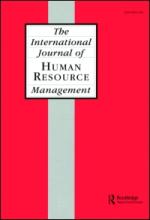
Abstract:
This study examines the comparative workplace experiences of twenty Muslim professional women from the United Kingdom and Australia classified as minorities in terms of their ethnic, religious, gender and migration status. Diversity as exclusion remains highly topical in extant diversity studies. For instance, Muslim migrants have often been stereotyped as sexually constrained, victimized, ignorant, poor, uneducated and tradition-bound. Muslim women may be highly discouraged if Western workplaces are not conducive to their social and cultural needs. By using human agency and coping theory, this study investigates the coping strategies of Muslim professional women, how they adapt, how they react and reflect on stressful workplace events such as discriminatory behaviour. Human agency theory provides a basis by which to explore agent responses to organisational narratives in this study. Overall, this study finds that active coping and planning to deal with stressful events is important for ethnic minorities and that emotion-focused coping is used when less active planning is prevalent. The study lends support to the triple jeopardy effects of race-related ethnicity, work practices and gender. The findings pose challenges for Western feminist theory in terms of the interface between gender and religion and the freedom of expression of individual agents in the workplace.
Keywords:
Coping strategies, Muslim professional women
